Transform Your Home with 10 Purifying Indoor Plants! Discover how these green companions breathe life into your space
In today's fast-paced life, our homes are our sanctuaries. But often, the air inside
our homes can be more polluted than the air outside! Dust, allergens, and chemicals from everyday products can build up, affecting our health and well-being.
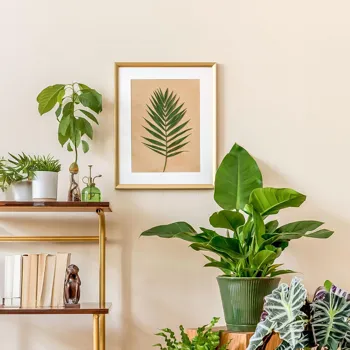
But don't worry, there's a natural and beautiful solution: indoor plants! These green companions not only add a touch of nature to your decor but also work tirelessly to purify the air, making your home a healthier and happier place.
Let's explore ten amazing indoor plants that can transform your living space into a haven of fresh air and positive vibes.
Snake Plant (Sansevieria trifasciata): The Unkillable Air Purifier
The snake plant, also known as mother-in-law's tongue, is a true champion when it comes to air purification. It's incredibly low-maintenance, tolerating neglect and thriving in various light conditions.
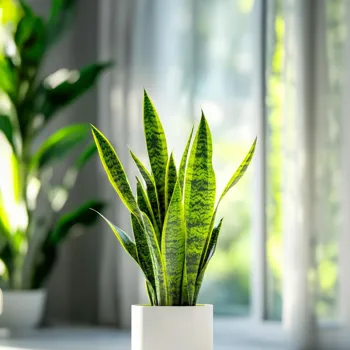
What makes the snake plant special is its ability to convert carbon dioxide into oxygen even at night, making it an ideal plant for bedrooms. It also removes toxins like formaldehyde, xylene, and toluene from the air, common pollutants found in household products.
If you're new to the plant world or have a busy schedule, the snake plant is your perfect partner. Its striking upright leaves add a modern touch to any room, and its air-purifying abilities will ensure you're breathing cleaner air. Just be careful not to overwater it, as this can lead to root rot.
Let the soil dry out completely between waterings, and your snake plant will thrive for years to come.
Spider Plant (Chlorophytum comosum): The Hanging Basket Hero
The spider plant is a classic choice for indoor greenery, loved for its easy care and air-purifying prowess. It gets its name from the little "spiderettes" or plantlets that dangle from its long, arching leaves, creating a charming cascading effect.
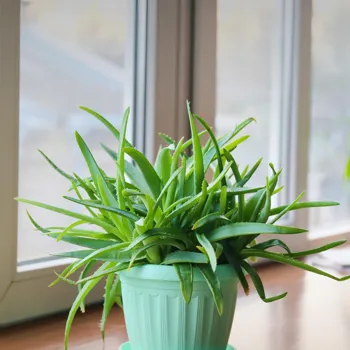
Spider plants are excellent at removing pollutants like formaldehyde and xylene from the air, making them a great addition to kitchens and bathrooms, where these chemicals are often present. They're also easy to propagate; simply snip off a spiderette and plant it in soil to create a new plant.
Spider plants prefer bright, indirect light and well-drained soil. Water them regularly, but avoid overwatering, as this can cause root rot. With their playful appearance and air-cleaning abilities, spider plants are sure to bring joy and freshness to your home.
Peace Lily (Spathiphyllum): The Elegant Air Cleaner
The peace lily is a stunning plant with its elegant white flowers and lush green foliage. It's not just a pretty face; the peace lily is also a powerful air purifier, effectively removing toxins like ammonia, formaldehyde, benzene, and trichloroethylene from the air.
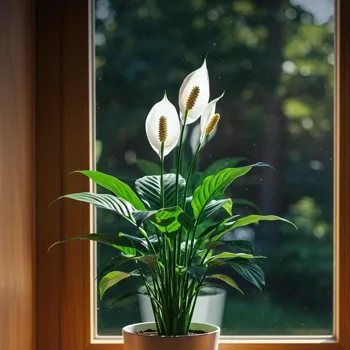
It thrives in low-light conditions, making it a good choice for rooms with less natural light. The peace lily also helps to increase humidity in the air, which can be beneficial, especially during dry winter months.
Keep the soil moist, but avoid overwatering, and be sure to wipe the leaves regularly to remove dust and allow the plant to breathe properly. While the peace lily is beautiful and beneficial, it's important to note that it's toxic to pets, so keep it out of reach of curious furry friends.
Money Plant (Epipremnum aureum): Good Luck and Clean Air
The money plant, also known as pothos, is a popular choice for Indian homes, believed to bring good luck and prosperity. But beyond its symbolic value, the money plant is also a fantastic air purifier.
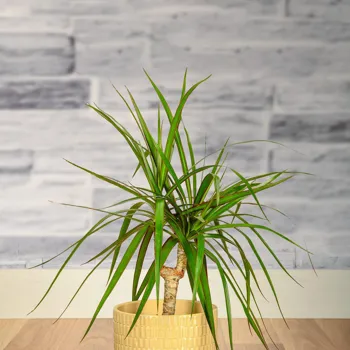
It effectively removes formaldehyde, xylene, benzene, and other common household toxins from the air. Money plants are incredibly versatile and easy to care for. They can be grown in hanging baskets, on shelves, or even trained to climb up walls.
They tolerate a wide range of light conditions, from bright indirect light to low light, and prefer well-drained soil. Water them when the soil feels dry to the touch, and avoid overwatering. With its lush foliage and air-purifying benefits, the money plant is a must-have for any Indian home.
Aloe Vera (Aloe barbadensis miller): The Medicinal Air Purifier
Aloe vera is not just a soothing remedy for sunburns; it's also a powerful air purifier. This succulent plant effectively removes formaldehyde and benzene from the air, making it a great addition to homes filled with new furniture or paint. Aloe vera is also incredibly easy to care for.
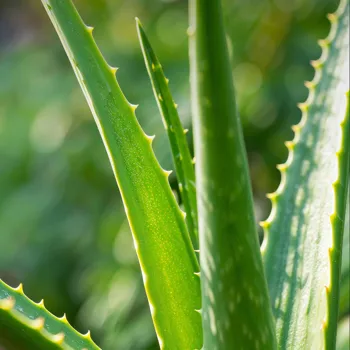
It thrives in bright, indirect light and well-drained soil. Water it sparingly, allowing the soil to dry out completely between waterings, as overwatering can lead to root rot.
The gel inside the leaves of the aloe vera plant has numerous medicinal properties, making it a valuable addition to any home. Use it to soothe burns, cuts, and other skin irritations. With its dual benefits of air purification and medicinal properties, aloe vera is a true wonder plant.
Areca Palm (Dypsis lutescens): The Tropical Air Humidifier
The areca palm, also known as the butterfly palm, is a majestic plant that brings a touch of the tropics to your indoor space. It's not only visually appealing but also highly effective at purifying the air.
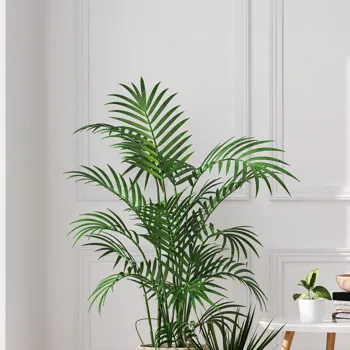
The areca palm filters out toxins like formaldehyde, xylene, and toluene, and it also acts as a natural humidifier, releasing moisture into the air. This can be especially beneficial during dry winter months or in air-conditioned environments.
The areca palm prefers bright, indirect light and well-drained soil. Water it regularly, keeping the soil moist but not soggy. Mist the leaves regularly to increase humidity and prevent them from drying out.
With its graceful fronds and air-purifying abilities, the areca palm is a stunning and beneficial addition to any home, provided you have the space to accommodate its size.
Bamboo Palm (Chamaedorea seifrizii): The Elegant Air Cleaner
The bamboo palm is another excellent choice for purifying the air and adding a touch of elegance to your home. It effectively removes toxins like formaldehyde, benzene, and trichloroethylene from the air. Bamboo palms thrive in bright, indirect light and prefer well-drained soil.
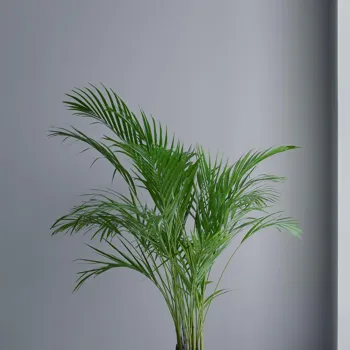
Water them regularly, keeping the soil moist but not soggy. Mist the leaves regularly to increase humidity. These palms are relatively easy to care for, making them a good choice for beginners.
With their graceful, arching fronds, bamboo palms add a touch of sophistication to any room, while also improving the air quality.
English Ivy (Hedera helix): The Trailing Air Purifier
English ivy is a versatile plant that can be grown in hanging baskets, on shelves, or trained to climb up walls. It's also a powerful air purifier, effectively removing toxins like formaldehyde, benzene, trichloroethylene, and xylene from the air.
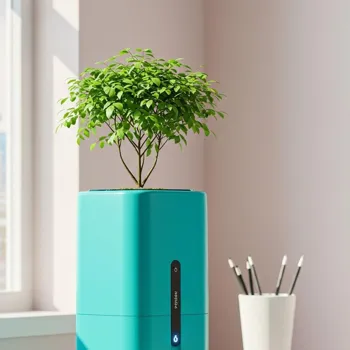
English ivy prefers bright, indirect light and well-drained soil. Water it regularly, keeping the soil moist but not soggy. Be sure to provide adequate support for the plant if you're training it to climb. English ivy can be toxic to pets, so keep it out of reach of curious furry friends.
Chinese Evergreen (Aglaonema): The Low-Light Air Purifier
The Chinese evergreen is a beautiful and easy-to-care-for plant that thrives in low-light conditions. It's also a good air purifier, removing toxins like formaldehyde and benzene from the air. Chinese evergreens come in a variety of colors and patterns, adding interest to any room.
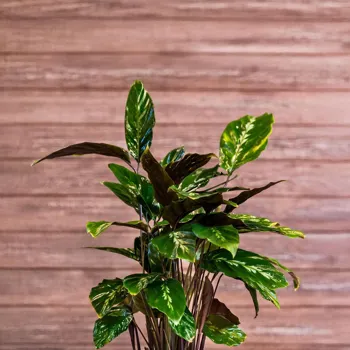
Water them when the soil feels dry to the touch, and avoid overwatering. These plants are relatively tolerant of neglect, making them a good choice for busy individuals.
Dracaena (Dracaena spp.): The Striking Air Purifier
Dracaena plants come in a variety of shapes and sizes, making it easy to find one that fits your space and style. They are also effective air purifiers, removing toxins like formaldehyde, xylene, and trichloroethylene from the air. Dracaenas prefer bright, indirect light and well-drained soil.
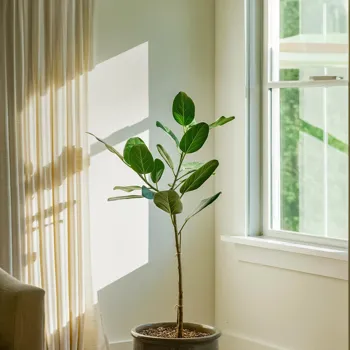
Water them when the soil feels dry to the touch, and avoid overwatering. Some varieties of dracaena can be sensitive to fluoride in tap water, so use filtered water if possible. With their striking foliage and air-purifying abilities, dracaenas are a great addition to any home.
By incorporating these ten air-purifying plants into your home, you can create a healthier and more vibrant living space. Not only will your home look beautiful, but you'll also be breathing cleaner, fresher air, which can improve your overall well-being.
So, go ahead and bring a touch of nature indoors – your lungs will thank you for it!
AI Generated Content. Glance/InMobi shall have no liability for the content











